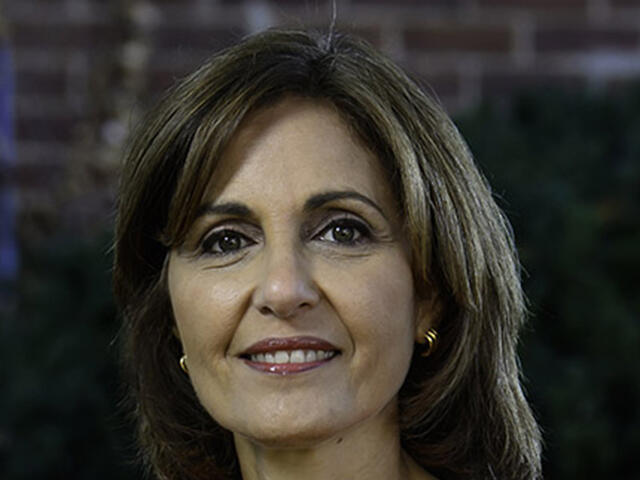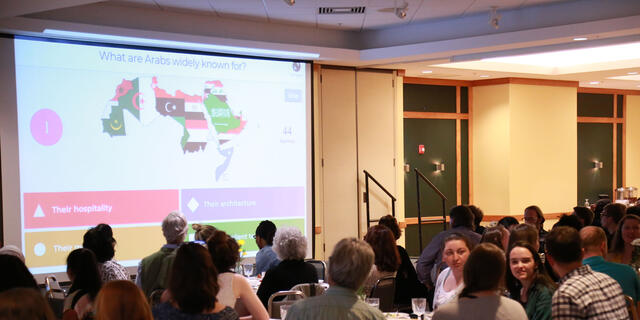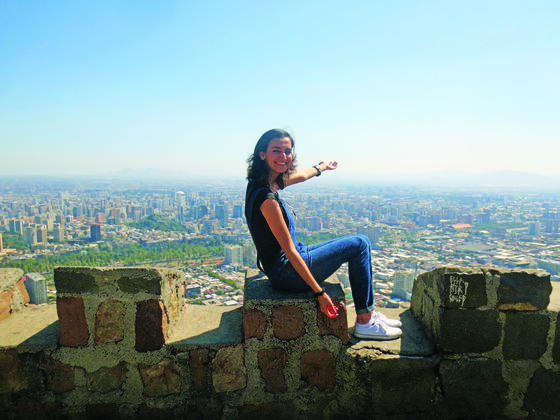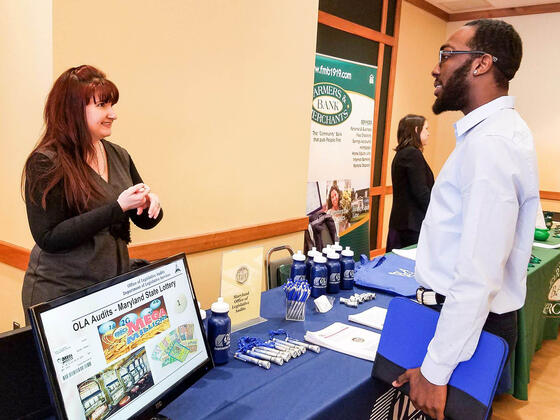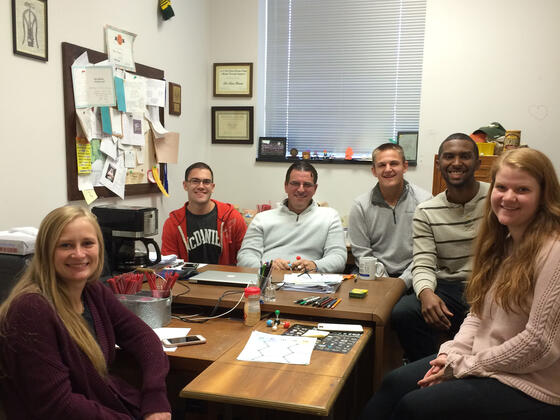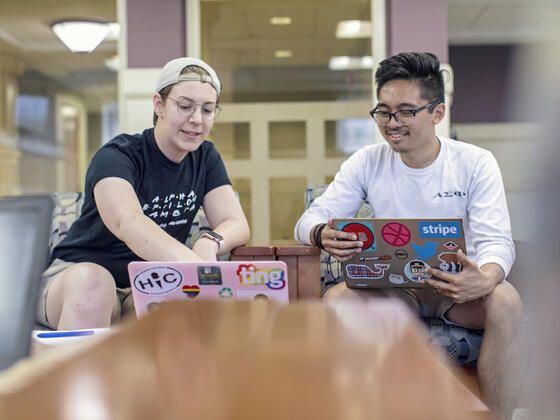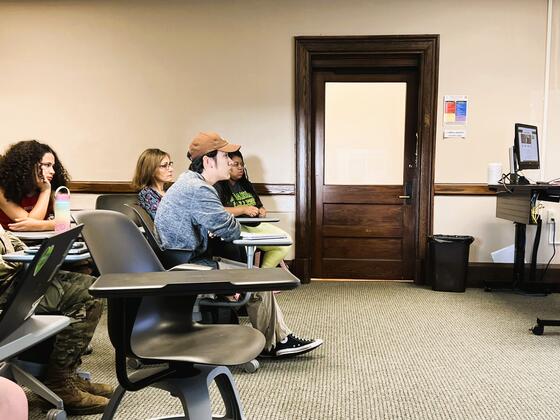Arabic
Arabic is the 4th most spoken language around the world, and its global and national significance is more important today—in political, economic, and cultural fields—than ever before.
Mortarboard
Degree Types
Minor
Institution
Complementary Programs
Heart
Distinctive Requirements
Internship (recommended)
Document
Connections Across Campus
ROTC Green Terror Battalion
McDaniel Commitment in Action
